By: MJ Alonso Lab
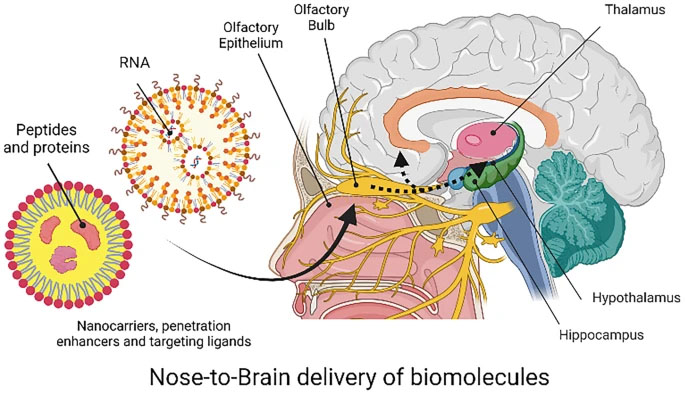
Check out our new OPEN ACCESS publication: ‘Using nanotechnology to deliver biomolecules from nose to brain — peptides, proteins, monoclonal antibodies and RNA’
November 4, 2021In our lab we are exploring the potential of the nose-to-brain drug delivery route for the transport of RNA molecules. Check this review article showing where we are now in this field
Read More
Nanotechnologies for the delivery of biologicals: historical perspective and current landscape
July 29, 2021Do you consider yourself a supporter or detractor of nanotechnology-based drug delivery? Do you believe nanotechnology may contribute to the successful exploitation…
Read More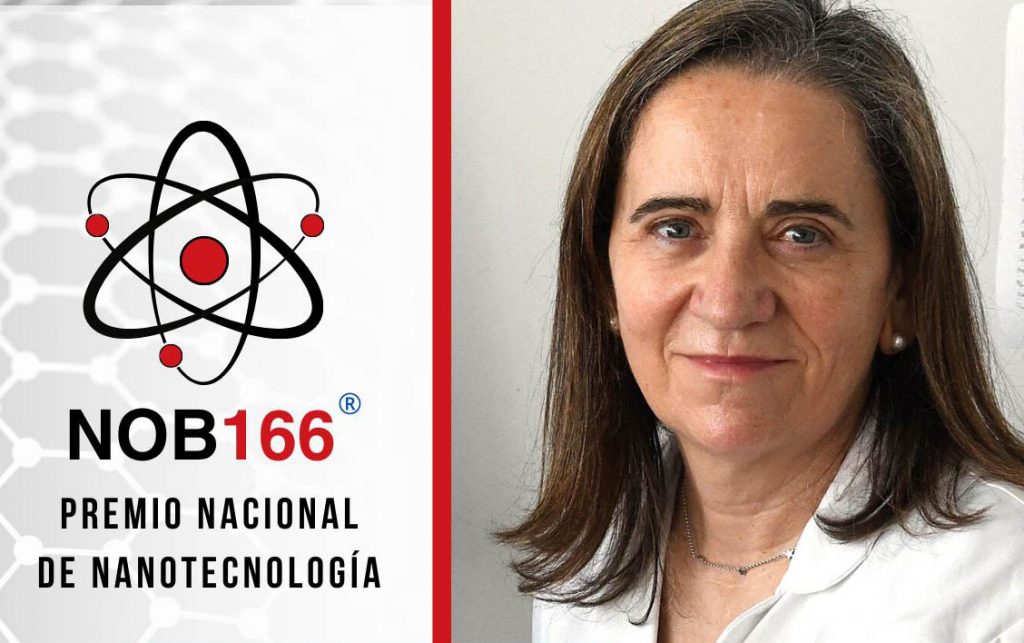
María José Alonso, once again recognized for her research career in the field of Nanotechnology
July 8, 2021María José Alonso, Professor of Biopharmaceutics and Pharmaceutical Technology at the University of Santiago de Compostela (USC), has just been recognized with the first ‘Nanotechnology Award’ granted by the company NOB166, for her research career in the field of Biopharmacy.
Read More
Check out our OPEN ACCESS publication: ‘Carboxymethyl-β-glucan/chitosan nanoparticles: new thermostable and efficient carriers for antigen delivery’
June 16, 2021Check out our recent paper published OPEN ACCESS in Drug Delivery and Translational Research, and official journal of the Controlled Release Society (CRS). In this work, we focused on an immunostimulant beta-glucan derivative, carboxymethyl-β-glucan, to prepare a novel nanocarrier in combination with chitosan.
Read More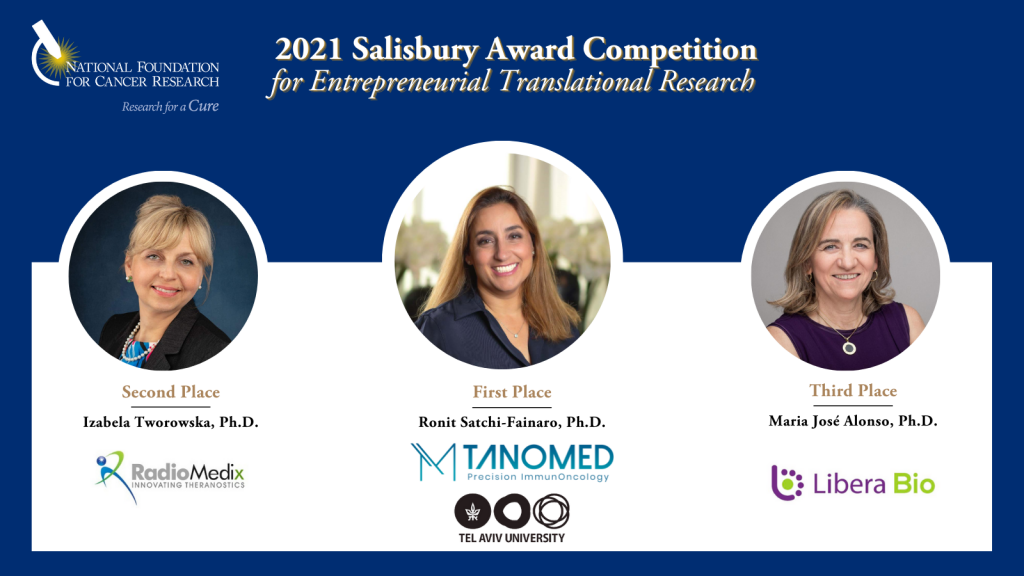
María José Alonso and Libera Bio, awarded by the US National Foundation for Cancer Research with the third prize of the 2021 Salisbury Award Competition
May 26, 2021Founded by Professor Alonso, Libera Bio is a company developing a novel delivery vector of whole monoclonal antibodies to intracellular cancer targets otherwise deemed “undruggable”. The Salisbury Award Competition is designed to catalyze and advance promising cancer research innovations onto a path of commercialization and patient impact.
Read More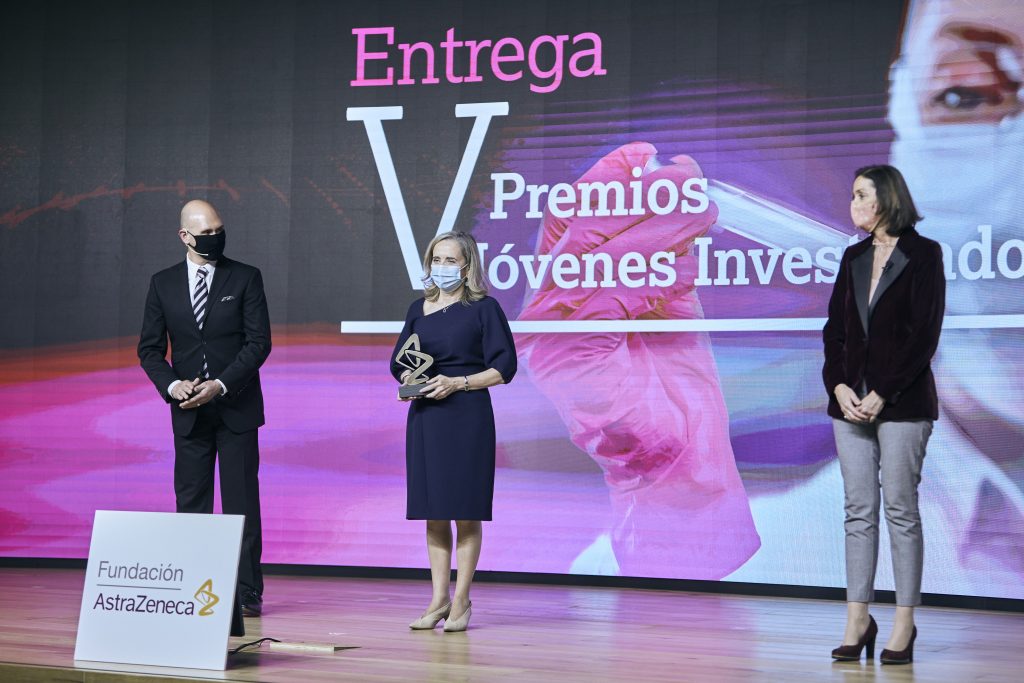
María José Alonso receives the ‘Honorific Award for Excellence in Scientific Research’ of the AstraZeneca Foundation
April 13, 2021The Honorific Award has been awarded since 2017 to clinical researchers with a proven career in biomedical research and who have contributed to the generation of knowledge and advances in their specialty and to the training of new researchers.
Read More
Check out our latest paper, published in DDTR: ‘Carboxymethyl-β-glucan/chitosan nanoparticles: new thermostable and efficient carriers for antigen delivery’
April 5, 2021In this work, we focused on an immunostimulant beta-glucan derivative, carboxymethyl-β-glucan, to prepare a novel nanocarrier in combination with chitosan.
Read More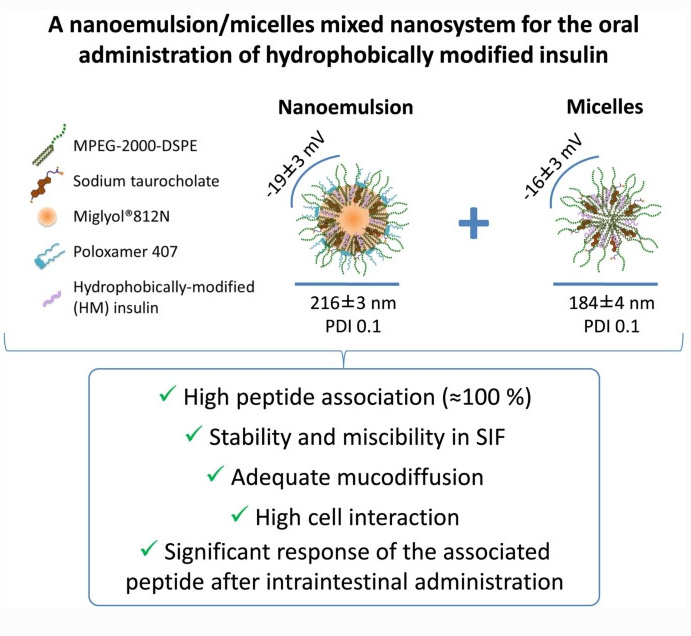
Check out our OPEN ACESS publication: “A nanoemulsion/micelles mixed nanosystem for the oral administration of hydrophobically modified insulin”
March 22, 2021You will find out about a nanoemulsion that enables the encapsulation of hydrophobically modified insulin. The lesson learned is that with a simple modification of a macromolecule of interest, you can achieve great encapsulation values in a nanoemulsion, a protection against degradation and an increased permeability. Chemistry of the cargo is something to consider when designing new formulations.
Read More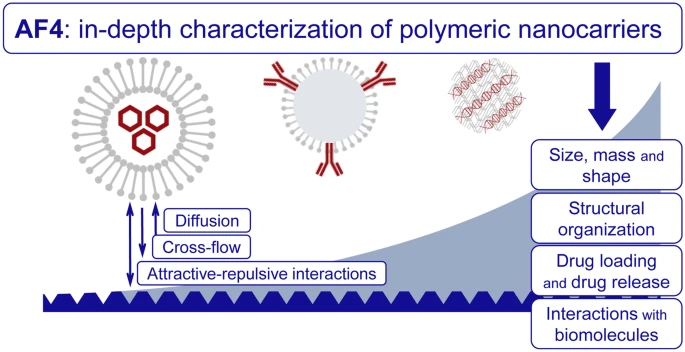
Check out our OPEN ACESS publication: “Asymmetric flow field-flow fractionation as a multifunctional technique for the characterization of polymeric nanocarriers”
March 22, 2021Check out our recent paper published OPEN ACCESS in Drug Delivery and Translational Research, and official journal of the Controlled Release Society (CRS). You will find out about the utility of Asymmetric flow field flow fractionation as a multifunctional technique for the characterization of polymeric nanocarriers.
Read More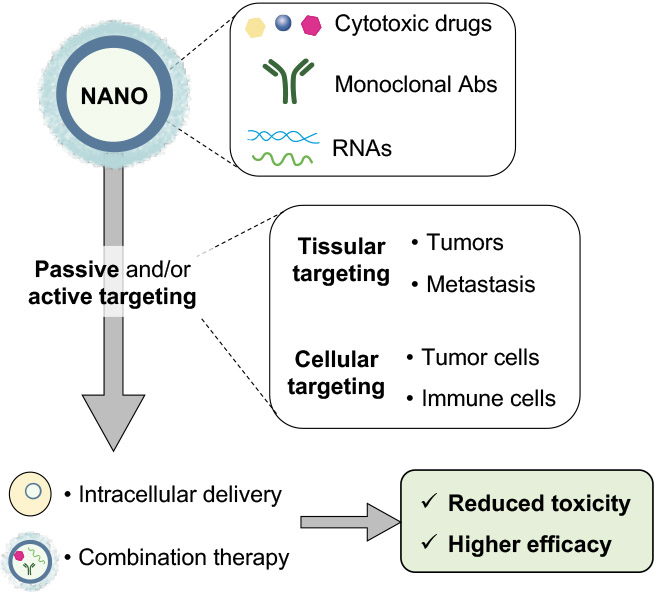
Check out our OPEN ACESS article on “Nano‐Oncologicals: A Tortoise Trail Reaching New Avenues”
March 11, 2021Nanotechnology is now opening new avenues for the treatment of cancer. Here we present a critical view on the potential of nanotechnology to improve the delivery of drugs (small molecules, monoclonal antibodies and RNA-based therapies) to tumor cells or to the tumor microenvironment. We foresee a future where the therapeutic strategy can be thoughtfully designed taking into account the tumor type, the immune status of the patient, and the nature of the active molecule. This is the era of personalized nanomedicine.
Read More